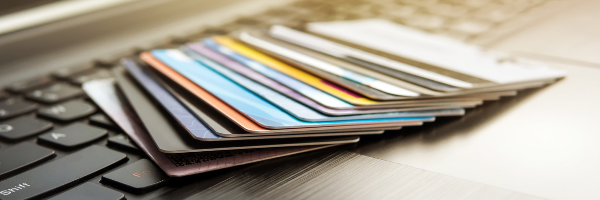U.S. Credit Card Debt Levels See Record Drop In 2020
Despite the financial challenges experienced by Americans as a result of the coronavirus pandemic, U.S. credit-card debt dropped to record levels in 2020, decreasing by almost $83 billion.1 This unprecedented drop was likely the result of individuals receiving financial assistance through the Coronavirus Aid, Relief, and Economic Security (CARES) Act and having access to more cash. Economic aid in the form of stimulus payments, suspended student loan payments, and broad state-sponsored unemployment benefits, allowed Americans to pay down their balances.2 In fact, according to a U.S. Census Bureau survey, almost 60% of adults in households that experienced a loss in employment income during the pandemic used their second stimulus check to pay down debt.3
If you are still struggling to pay down your balances, here are some strategies to help eliminate your credit-card debt.
- Pay off cards with the highest interest rates first. If you have more than one card with an outstanding balance, one option is to pay the most to the card with the highest interest rate and continue making payments to your other cards until the card with the highest interest rate is paid off. You can then focus your repayment efforts on the card with the next-highest interest rate, and so on, until they're all paid off.
- Apply for a balance transfer. Many credit-card companies offer highly competitive balance transfer offers (e.g., 0% interest for 12 months). Transferring your credit-card balance to a card with a lower interest rate may enable you to reduce interest charges and pay more against your existing balance. Keep in mind that most balance transfer offers charge a fee (usually a percentage of the balance transferred), so be sure to do the calculations to make sure it's cost-effective before you apply.
- Pay more than the minimum. If you pay only the minimum payment due on a credit card, you'll continue to carry the bulk of your balance forward without reducing your overall balance. Instead, try to make payments that exceed the minimum amount due. For more detailed information on the impact that making just the minimum payment will have on your overall balance, refer to your monthly billing statement.
- Look for other sources of available funds. If you always seem to find that you don't have the extra cash available to pay down your balances, you may want to look for other sources of available funds. Are you expecting an employment bonus or other financial windfall in the near future? If so, consider using those funds to help eliminate or pay down your credit-card debt.
1) Credit Card Debt Study, WalletHub, March 2021
2) Credit Card Debt in 2020, Experian, November 2020
3) Household Pulse Survey, U.S. Census Bureau, March 2021


